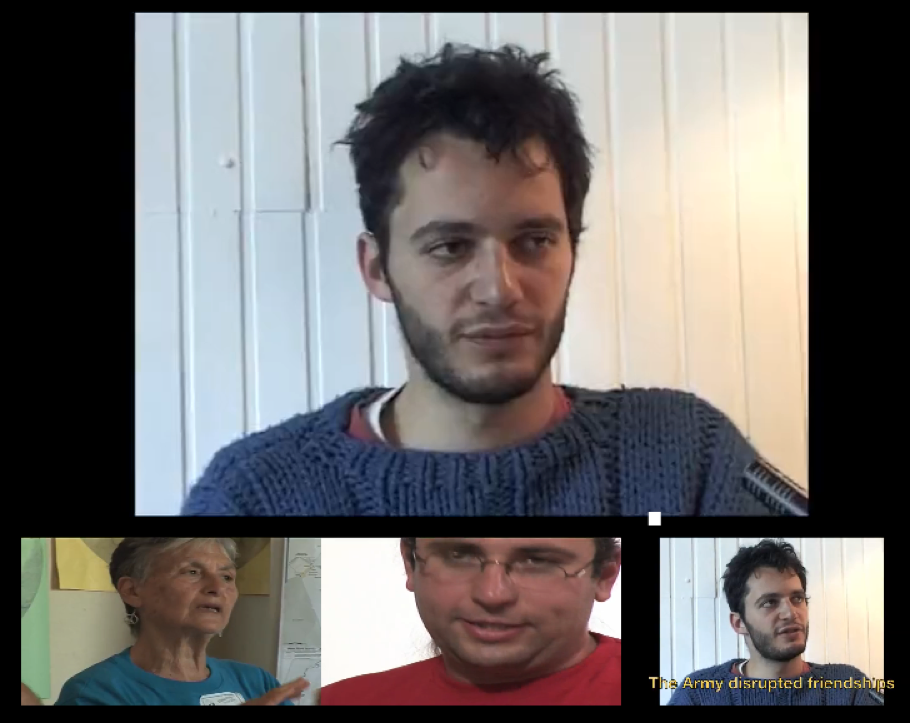The Only Democracy? » Discrimination » Strawberry Fields Forever
Strawberry Fields Forever
This week the Israeli Ministry of Defense announced the “beginning of the export season” in the Gaza Strip. “The export season” entails the continuation of a short-term program, sponsored – from planting through to distribution – by the Dutch government. The program allows a few farmers in Gaza to sell strawberries and flowers in European markets. So far this week, 7 trucks have left the Strip.
As has been the case in every year since June 2007, the export of flowers and strawberries is the exception that proves the rule. While in 2005 Palestinian residents of Gaza exported approximately 70 truckloads per day to Israel, the West Bank and abroad, and while Israel promised, in the 2005 Agreement on Movement and Access, to permit the transfer of 400 outbound trucks daily from Gaza, since June 2007, only 262 trucks have left Gaza – a daily average of one-third of a truck.
The overall export is summed up in the following table:
Trucks leaving Gaza on average per day, June 14, 2007 – Dec. 1, 2010
This year, the Ministry of Defense promised an increase in the levels of export: up to 10 trucks a day of strawberries and flowers during the winter, and for the first time since 2007, within the framework of the Dutch project, Israel is considering permitting export of cherry tomatoes and red peppers. The general ban on export – of furniture, clothes, and other agricultural produce – remains in place.
It is therefore not surprising that two-thirds of the factories in Gaza are not operating or operate at minimal capacity, and unemployment in the Strip hovers at around. 40%.
The continuation of the general ban on export raises questions regarding the sincerity of Israel’s announcement that restrictions on goods entering and leaving Gaza will be limited to those necessary to address security concerns. If Israel can check trucks loaded with strawberries and flowers, why can’t it check the goods produced by factory workers in Gaza, as it did until June 2007? Another restriction, which has a less than clear relationship to security, is the refusal by the Ministry of Defense to allow Gaza residents to sell their products in Israel, the West Bank, and Jordan, as they did until 2007. If flowers enter Israel on their way to Europe, why does Israel refuse to allow them to continue to the West Bank or Jordan or to flower shops in Israel? The land crossings with Israel are the only way out for goods, because of Israel’s ban on movement via Gaza’s airspace and territorial waters.
Perhaps the Defense Ministry has started to implement the plan announced by Foreign Minister Avigdor Lieberman: to close the crossings between Israel and the Gaza Strip hermetically, thereby blocking all access between Gaza and the West Bank. Instead of being sold to Israel, the West Bank, and Jordan (the main markets for Gaza’s agricultural produce until 2007), Gaza’s strawberries and flowers have to make the long and expensive journey to Holland which leaves farmers with little profit.
Recently, Lieberman announced that “we will of course be happy, if we find buyers that are interested in purchasing from Gaza” and “we are willing to cooperate with anyone who is interested in investing money, and creating a market for Gaza’s products” (clickhere for the statement in Hebrew). Well, Minister Lieberman, the markets are waiting, and you don’t have to invest money, just open the crossings!
Filed under: Discrimination · Tags: Agriculture, Gaza, Gisha, Siege, Strawberries








 “You have a choice! Israeli Anti-Militarists Speak”
“You have a choice! Israeli Anti-Militarists Speak”